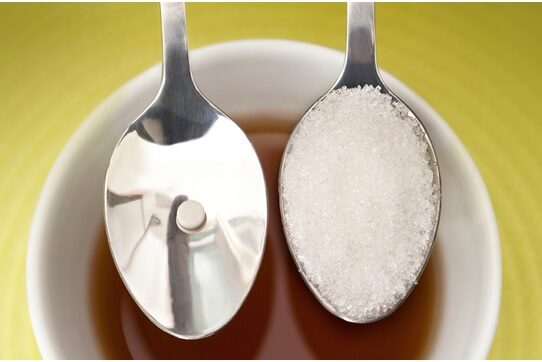Increased use of salt substitutes reduces the risk of new cardiovascular events in people with a history of stroke and people over 60 years of age. There are two types of stroke: ischemic (caused by a clot) and hemorrhagic (caused by a hemorrhage), and the main risk factors of stroke include hypertension, coronary artery disease, diabetes, and obesity.
Hypertension and cardiovascular events
The main factor responsible for strokes is hypertension and it has been estimated that worldwide, high blood pressure accounts for 54% of all strokes. In addition, evidence suggests that a reduction in salt intake can lower blood pressure, leading to a decreased risk of stroke. The use of salt substitutes –in which sodium is replaced by potassium– can also lower blood pressure, although evidence of a beneficial effect on cardiovascular disease and mortality is scarce.
The research
Lacking data from randomized trials examining the impact of salt substitutes on cardiovascular outcomes, a team led by researchers from the George Institute for Global Health, Sydney, Australia, deployed the Salt Substitutes and Stroke Study. (SSaSS) in 600 rural villages in China. The team recruited adults with a history of stroke or individuals who were 60 years of age or older and poorly controlled their blood pressure. This was defined as a systolic pressure > 140 mmHg in case the individual was receiving treatment or > 160 mmHg if the individual was not receiving treatment. The individuals were then randomized to receive salt substitutes at no charge, which contained 25% potassium chloride, and were asked to use it instead of common salt for cooking, seasoning food, etc. The primary outcome was stroke, and the secondary outcome was major cardiovascular events, comprising a combination of non-fatal stroke, non-fatal acute coronary syndrome, or death from vascular causes. The main safety outcome was clinical hyperkalemia and, to monitor electrolyte levels, every 12 months a subset of participants provided 24-hour urinary electrolyte excretion.
Findings
A total of 20,995 individuals with a mean age of 65.4 years (49.5% female) were enrolled and randomized to either group and then followed-up for 4.74 years. Overall, 72.6% of participants had a history of stroke, 88.4% a history of hypertension. Among those with hypertension, 79.3% were prescribed at least one antihypertensive drug and the mean arterial pressure of the sample was 154/89.
In participants consuming salt substitutes, the stroke rate was lower (rate ratio, RR = 0.86, 95% CI 0.77 to 0.96, p = 0.006) compared to habitual consumers of salt. Furthermore, both the rate of major cardiovascular events (RR = 0.87) and death (RR = 0.88) were significantly lower in the salt substitute group.
Analysis of electrolyte samples during follow-up also showed that sodium excretion was lower in those consuming salt substitutes. In terms of safety, there were no significant differences in the level of hyperkalemia (p = 0.76). The authors concluded that the consumption of salt substitutes by people with hypertension and a previous stroke led to a significant reduction not only of future strokes, but also of major cardiovascular outcomes.
Link: https://www.sochob.cl/web1/los-sustitutos-de-la-sal-reducen-el-riesgo-de-accidentes-cerebrovasculares-y-eventos-cardiovasculares/
Date: September 20th, 2021
Source: https://hospitalhealthcare.com
Reference: Neal B, Wu Y, Feng X, et al. Effect of salt substitution on cardiovascular events and death. N Engl J Med 2021;385:1067-1077.
Nutrigenomics Institute is not responsible for the comments and opinions included in this article






